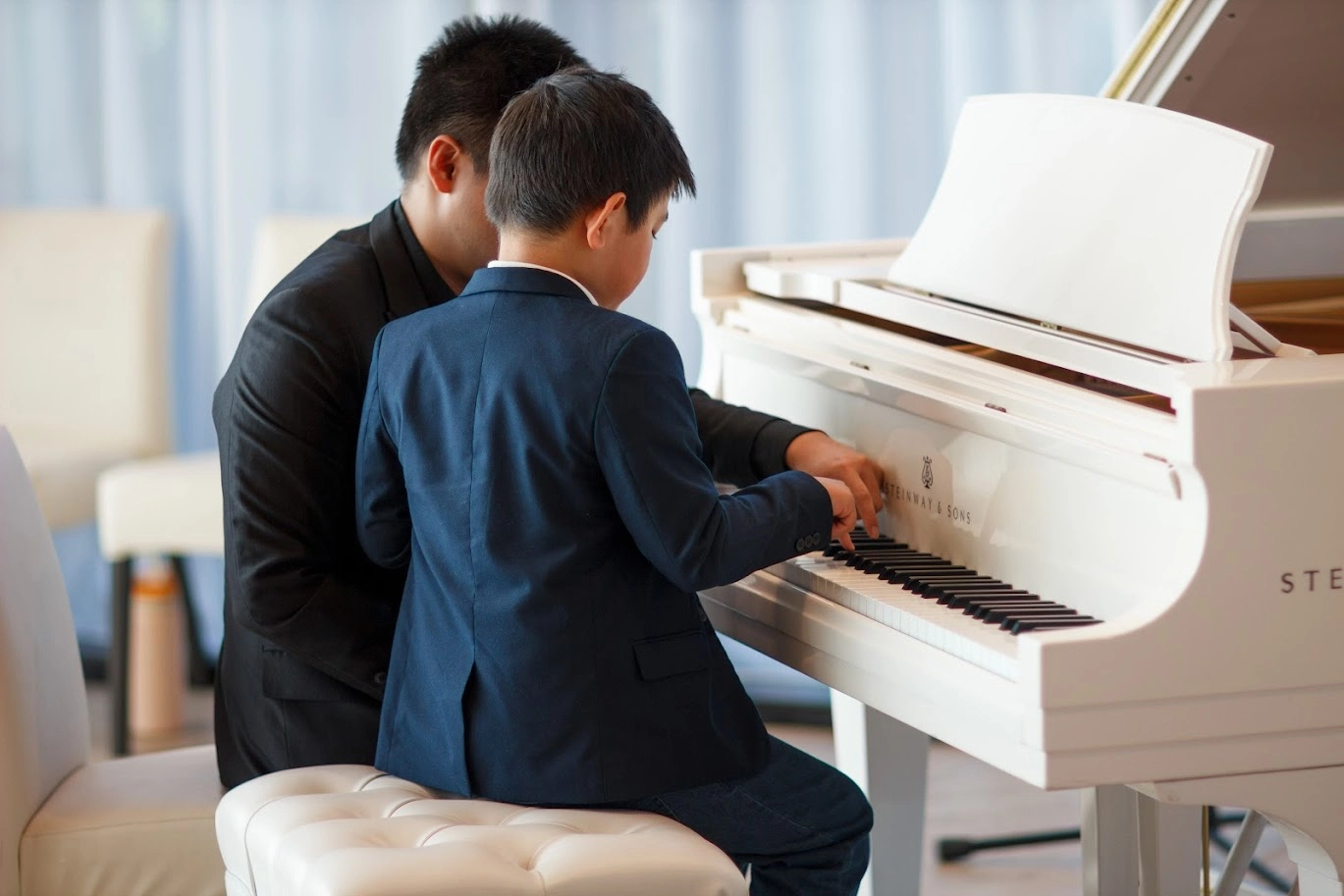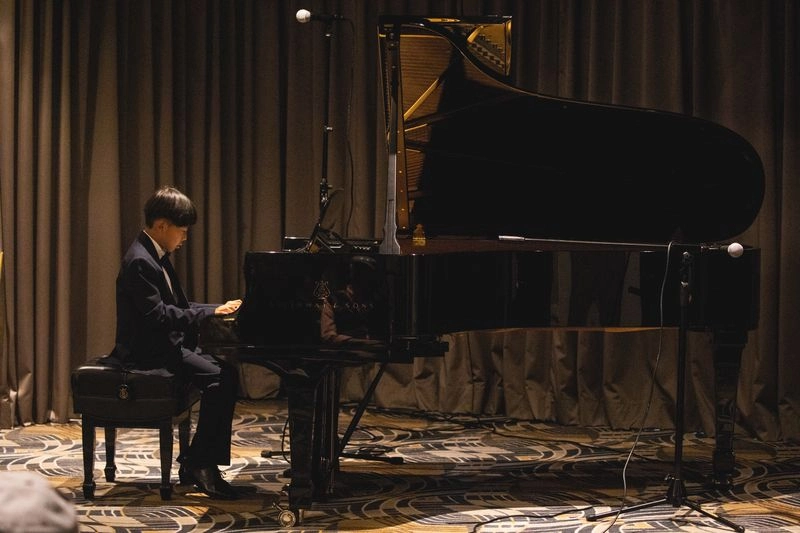Voice lessons can be a very useful tool to build confidence in both children and adults. If you thought public speaking was scary, try adding public singing. Unlike other instruments there is nothing to hide behind and nothing between you and your audience. Helping the student overcome the fear and anxiety of being judged is of primary importance. Because of this, great vocal training involves not only physical techniques, but psychological ones as well.
Comfort with singing:
Some exercises may include asking the student to laugh to feel comfortable with themselves in front of others. This can best be accomplished in our group classes, masterclasses, and recitals. One exercise also used to accomplish comfort in beginners is to ask the student to intentionally sing badly. If they can sing badly in front of people and still have fun, then it will be much easier for them to approach singing with less anxiety and mental discomfort.
Breathing:
Breathing correctly is not only important for singing well, but can also help reduce stage fright and performance anxiety. A proper vocal breath comes from the full release of the abdominal region and expansion of the ribs upon inhalation, which allows the diaphragm to descend properly. It is a known fact in many religious practices as well as meditation, that breathing with low, deep breaths can create a very even and calm state of mind. Not only does breathing in this way help vocal students gain control of their instrument, but can also help them during moments of general anxiety.
What is a singers breath?
For those that are beginning voice lessons or interested in getting started, breathing is perhaps the most important aspect of singing well. Here is a good exercise to understand what a singers breath feels like. Lie down on your back, place a book on your lower abdomen, and inhale as low as possible. Allow the book to rise upward while breathing. Perhaps suspend the air for a moment or two and then begin to exhale. Do not exhale quickly, but slow and controlled hissing on the consonant “s”. The slower you exhale, and the more you can control the speed of the breath, and the easier it will be to control the singing voice.
Expressing yourself:
Many of us are nervous about public speaking, or standing out from the crowd. To sing well, you must be able to put out energized sound and expression. This also has a very positive effect on a person's confidence. Many of the exercises in early vocal training include energized, supported chanting and sirens. Voice lessons and recitals give the student an opportunity to express themselves emotionally and physically in a way that few other endeavors allow. The ability to express and sing with passion, sincerity, and strength, is something that the average person does not have the opportunity to do on a daily basis.
The importance of posture:
Good singing requires upright posture and an open chest. Posture is not only healthy for good singing, but is also known to have positive psychological effects as well. Slumped shoulders and a low head rather than a proud, high posture are generally signs of poor self confidence. low self confidence is often paired with other issues that induce weak breathing due to a collapsed posture. Good posture can help reverse these negative habits, and have a positive effect on the singers confidence as well.
Do something you never thought you could do:
Many adult students come to us at the Angeles Academy of Music for voice lessons as complete beginners, and they are amazed after a few months to discover what they can do! Sometimes a student with a very soft speaking voice, ends up having a tremendous, powerful vocal tone that they never imagined was possible. Children that come to us for vocal training are also often surprised to find that they can also play basic chords on the piano or guitar while singing and end up building self-confidence throughout this process. For more tips on practicing visit
.svg)
.svg)
.svg)
.svg)
.svg)
.svg)





.svg)